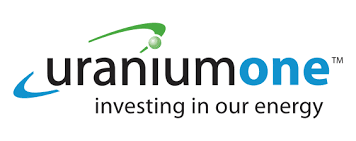THE disclosure that Uranium One -- a Canadian-based uranium producer in which the Russian government holds a significant stake -- has taken a shareholding in Paladin Energy should provoke interest in Canberra.
That's because, under Australia's foreign investment guidelines, Uranium One should have sought approval before acquiring any shares in Paladin. It's thought that it did not do so.
The holding to date is small -- 9.84 million shares, or 1.37 per cent of Paladin's capital.
Uranium One has confirmed the holding and says the shares were purchased for "investment purposes", that the company continually reviews its investment alternatives and may, from time to time, acquire additional shares or dispose of its holding.
Maybe.But if the intention was to acquire a strategic shareholding in Paladin, then presumably Uranium One won't make any further purchases without first notifying FIRB and seeking the approval of federal Treasurer Wayne Swan.
Uranium One's buying was only flushed out as a result of regular monthly monitoring by Paladin of purchases of its shares.
The buying was conducted through a Credit Suisse nominee company in the US. Paladin sent out tracing notices on April 15, which revealed that the beneficial owner was Cheetah Resources, a Luxembourg-domiciled entity, which at that stage held 4.345 million shares. A further tracing notice on April 28 revealed that Cheetah's holding at that stage had risen to 9.84 million shares.
It's suggested that Paladin suspects Uranium One might hold further shares through another entity and that additional tracing notices have been sent in an endeavour to ascertain whether that is the case.
If Uranium One was hoping to build a bigger stake in Paladin, its cover has now been blown. Not only will FIRB have been alerted but investors also know of its buying and the Canadian group would find it more difficult to dislodge sellers.
Paladin's share price jumped from $3.68 to $4 on the disclosure of Uranium One's stake, but has since drifted back to $3.65, in line with the overall market decline.
The uranium industry is closely held, but there has been speculation there might be further consolidation, with Canada's Cameco mentioned as a possible bidder for Paladin.
Paladin has positioned itself uniquely within the uranium supply industry and is currently the only independent uranium producer with developed, proven reserves and significant volumes of uncommitted production.
An Australian company, Paladin has brought two uranium mines into production in Africa: Langer Heinrich in Namibia and Kayelekera in Malawi.
Paladin has not had any formal approaches from third parties, but is believed to have received numerous soundings, including from government-controlled entities, Asian trading houses and uranium producers. But to date it has preferred its independence.
Uranium One's uranium production is predominantly in Kazakhstan, although the company also owns 51 per cent of the Honeymoon deposit in South Australia, which recently received the go-ahead from the South Australian government and is scheduled to come into production around the end of this year.
The Canadian group is said to be looking for assets in Africa to diversify its production base from Kazakhstan.
Under the federal government's foreign investment policy, direct investments made by foreign governments and their agencies, irrespective of their size, are notifiable to FIRB, and the ownership or control of the investor by a foreign government raises additional factors for examination.
Paladin has ascertained that Cheetah is wholly owned by Uranium One, which in turn is 16.6 per cent owned by Japan Uranium Management (JUM), 19.3 per cent by Atomredmetzoloto (ARMZ) and 64.1 per cent by institutional and retail investors.
JUM is a Japanese consortium made up of Tokyo Electric Power (40 per cent), Toshiba (40 per cent) and the Japan Bank for International Co-operation (JBIC), a Japanese state-owned company, while ARMZ, the world's fifth-largest uranium producer with operating mines in Russia and Kazakhstan, is a Russian state-owned uranium mining company.
ARMZ is part of Rosatom, the Russian state corporation that controls the Russian Federation's nuclear activities. ARMZ supplies strategic feedstock to the Russian nuclear industry.
ARMZ director-general Vadim Zhivoc is a director of Uranium One and the Canadian company has agreed to appoint a second ARMZ representative to the board, subject to shareholder approval.
In June last year, Uranium One and ARMZ entered into a framework agreement under which they agreed to work together to build Uranium One's global platform and develop it into one of the largest uranium producers in the world.
In particular, they agreed to discuss areas of potential co-operation in the uranium industry and that ARMZ would use commercially reasonable efforts to allow Uranium One to participate in investments in uranium exploration projects, or any form of joint venture, to develop or operate uranium exploration properties outside of the Russian Federation.
Moreover, Japan and Russia last year signed a new nuclear co-operation agreement under which Japan can send nuclear material to Russia for enrichment and return to Japan.
However, concerns have been expressed that some of the enriched fuel might be sent to third countries -- including, perhaps, Iran.
The agreement also opens the way for joint mining and oil ventures between the two countries.
As ARMZ owns more than 15 per cent of Uranium One, it would almost certainly be deemed under section 9 of the Foreign Acquisitions & Takeovers Act (FATA) to have a controlling interest in Cheetah's 1.37 per cent stake in Paladin.
There's also JUM's 16.6 per cent stake in Uranium One.
The association provisions of FATA are sweeping and given that the state-owned JBIC owns more than 15 per cent of Uranium One -- together with the nuclear co-operation agreement between Russia and Japan -- it's possible that JUM and ARMZ might be taken to jointly control close to 40 per cent of Uranium One.
Uranium is a sensitive industry as far as the foreign investment policy is concerned, so it may well be that now that Paladin has outed Uranium One, the FIRB and the Australian government will play close attention should there be any further developments.


